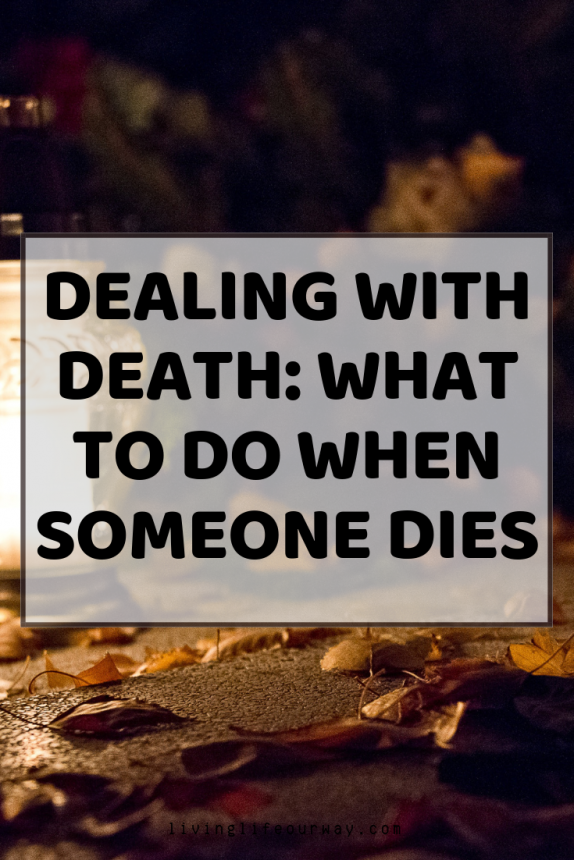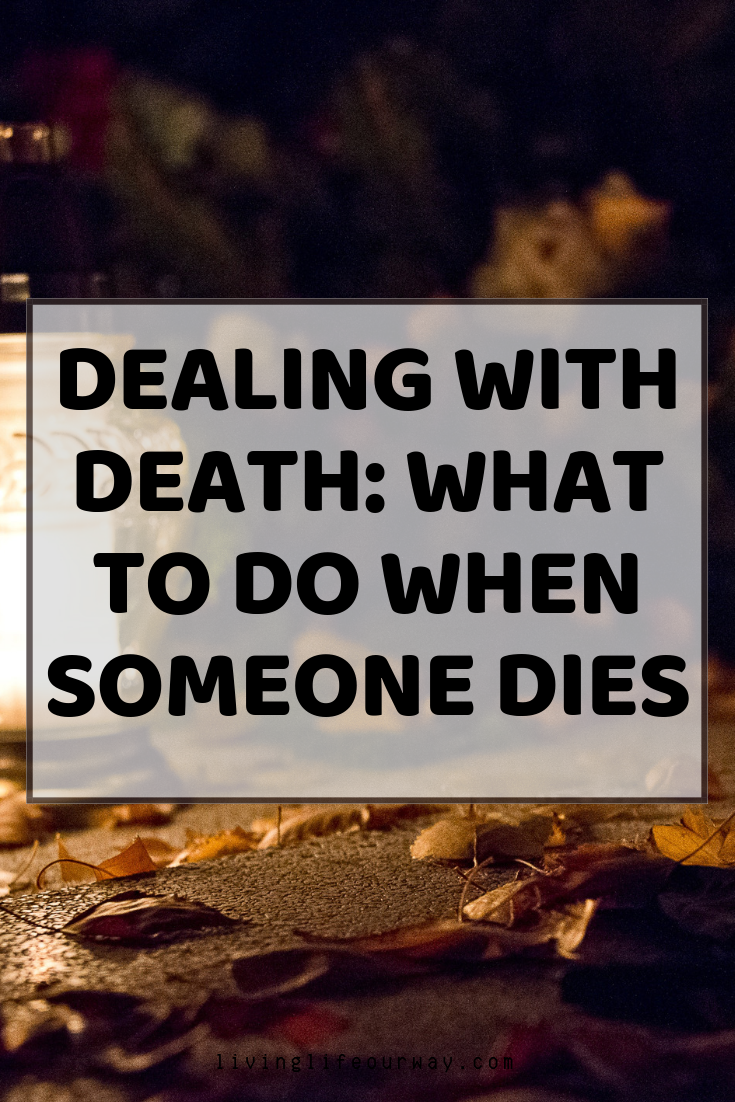As I have mentioned in previous posts, my grandad died last year. This certainly isn’t the first close family bereavement I have had; my other three grandparents have also passed, and my mum died back when I was just 21, so around 18 years ago now. However, this time was different. My brother and I were next of kin, and so, for the first time ever, the practical side of dealing with death became our responsibility.
Now, I won’t lie; my brother took care of practically everything, due to my own difficult circumstances. (I have mentioned previously that the bereavement led to Squiggle having a full-on mental health crisis). However, I did pick up some useful information from him along the way, which might help other people going through the same thing…

Register the Death and Notify People
The first thing to do is report the death, and the coroner will come to take the body away. At this stage, you might feel overcome with emotion and struggle to see them leave, or you may feel entirely numb. Or anywhere in between. And whatever you feel, that is ok and normal.
You will also need to register the death within 5 days. To do this, you need the medical certificate and you will be asked some simple questions about their personal details. Taking a form of their ID along may help with this. You will then be given the death certificate.
In your own time, but sooner rather than later, you will need to let people know the sad news. As well as friends and family, you need to let anyone working with them – either through employment, volunteering, or carers – know too. Plus HMRC/ benefits, banks, housing, and bills, will all need to be notified as well.
With housing, depending on the situation, please note you may then be on asked to clear-out and vacate the property within a limited timeframe, so be mentally and physically prepared for this task ahead too. For example, my grandad was in a rented home run by a local charity and we were given a month to hand over the keys to an empty home.
Funeral Arrangements
If the person had pre-planned their own funeral, as my grandad had done, then this makes some of the arrangements easier to deal with. Make a note of any specific last requests for the funeral, which might be written, or simply in the form of information left with somebody. Things to consider are; type of funeral to hold (burial or cremation), type of service they would like (religious or not for example), arranging flowers (or donation to charity, or some other alternative), transport, any readings and song choices, and what to do afterwards. Some people also like some kind of memorial; words in a book or remembrance, a plaque on a wall, or even a bench, or a tree planted.
All of these aspects are very personal choices and so therefore there are lots of difficult decisions to make at this time. Funerals are also expensive, so cost might be a factor too. It can be a difficult time, but you need to be gentle with yourself and remember you are doing the best you can for them.
Legal Documents and Settling Estate
We found this more time consuming than expected, despite it being a relatively straightforward set of affairs in our case. A solicitor maybe needed depending on the circumstances; we did it ourselves. You will need various documents in order to close bank accounts, and make sure you check any relevant policies too. Any goods sold, including property sale if relevant, will then need to be added to the total amount to be distributed. The final amount should then be shared out as per stated by the testator. Depending on how much it adds up to, you might need to pay tax on it too so remember to notify HMRC.
Sunlife have also written a useful guide on what to do when someone dies, which includes handy checklists to help remember everything during this difficult time. You might find this very helpful to refer to.
Final Thoughts
It can be hard to process all the emotions when you are hit with a bereavement, especially if you are feeling overwhelmed with the practical tasks too. Be sure to reach out and ask for help and support when needed. Also consider seeking counselling if things get too much to cope with. Looking after yourself, and those around you, is important.
*This is a collaborative post.

